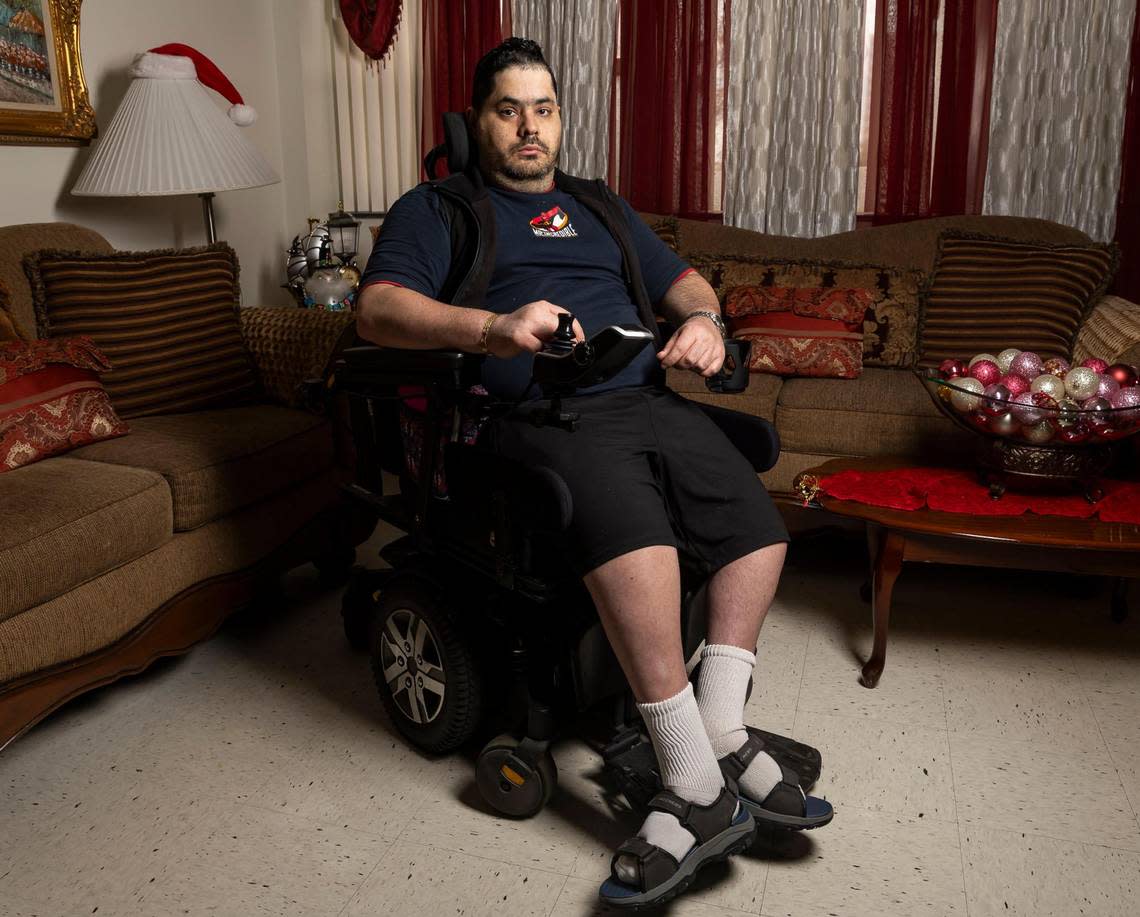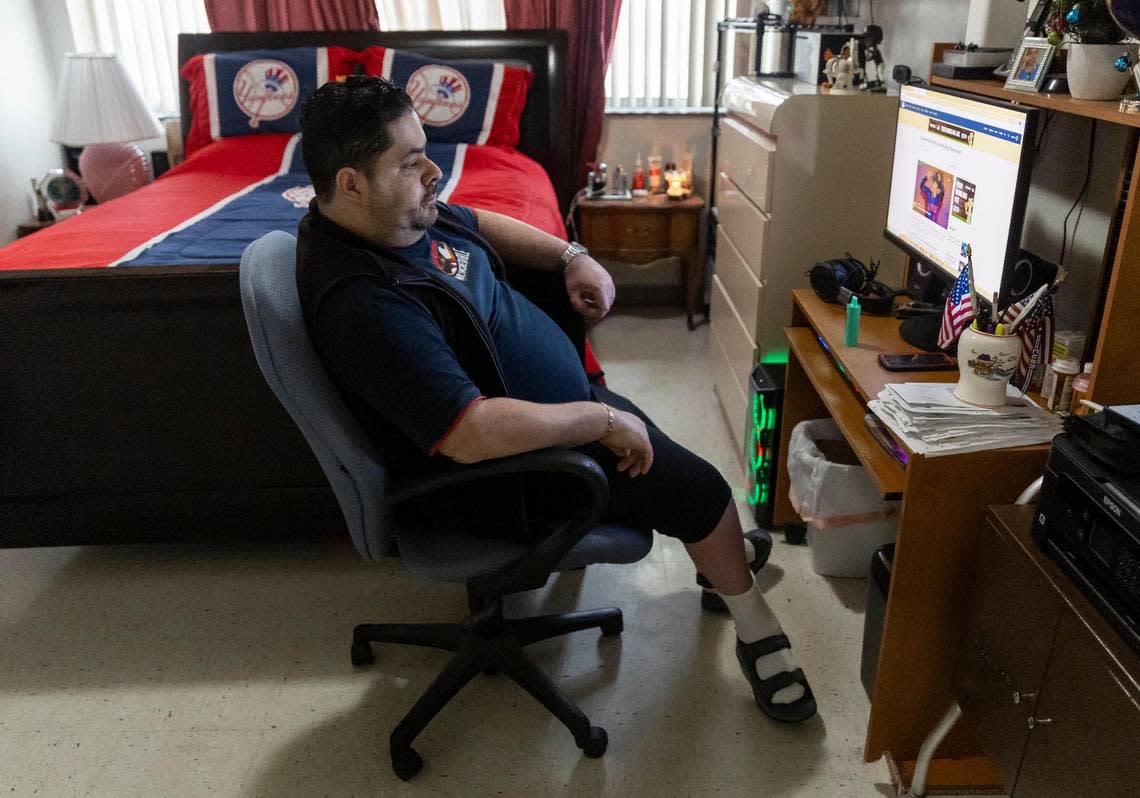Spina bifida limits his mobility, so he lives through his computer. Then his desk broke
When Rudens Rodríguez, 43, accidentally broke a leg of his desk, his emotions overwhelmed him.
The desk has a special value to him because it is there, sitting in front of the computer, where Rodríguez spends most of his day.
Rodríguez, of Cuban origin, has myelomeningocele, the most serious form of spina bifida, which affects his mobility.
“The computer is my life. I used to go out, but after COVID-19 I decided not to go out anymore. I am on the Internet all day,” Rodríguez told el Nuevo Herald.
Rodriguez is shy about listing what he needs from the Miami Herald/el Nuevo Herald Wish Book to improve his quality of life, but he’s insistent that a computer table with a keyboard tray is his priority.
“I am always in my room in front of the computer. I need a new desk,” he said. “The one I have is supported by a box of cigars.” He broke it while leaning on it to avoid falling.
He was nominated for help from Wish Book by Spinal Cord Living Assistance Development, Inc., or SCLAD, a Hialeah nonprofit that helps people with certain disabilities with housing, job training, and other services intended to support independent living.
Rodríguez has undergone surgery more than 17 times to correct kidney, bone, and muscle complications. Every four hours he must use a catheter to drain urine that he cannot expel naturally. This limits his possibilities of going out. It even limits his studying.
More than five years ago, he tried to study computer engineering at Miami Dade College’s Hialeah campus, but getting around on crutches was a big challenge. That is why he decided to abandon his studies.
Now, although he has an electric chair that facilitates his mobility, he is afraid of catching any disease.

Rodríguez is assisted two days a week by Dayisel Tejeda, who helps him with household chores. She explained to el Nuevo Herald that before COVID-19, he walked around the building’s parking lot and went out to shop, but now he always stays in his home.
Rodríguez also needs to replace his Quantum Edge 2.0 electric chair. He bought the wheelchair used several years ago, but it is starting to fail. At a minimum, he needs to replace the chair’s rubber wheels.
Walking is a risk. Because of the position of his knees, he lacks the stability needed to stay upright consistently.
Additionally, Rodríguez frequently experiences back pain, specifically in the lower back. He says the humidity in his room affects him a lot. A dehumidifier could help him have better air quality and reduce lower back pain, he said.
Rodríguez lives in a two-bedroom SCLAD apartment on East Second Avenue in Hialeah. He lives with his aunt Raquel Camejo, 80, who has hypertension and heart conditions.

For that unit they pay $741, a rent well below the city’s average price, which already exceeds $2,000 for an apartment. Each receives a check for $914 a month — him for disability, her for retirement.
Rodríguez was nominated for the Herald Wish Book by Rebeca Rapallo, social worker at SCLAD.
“I thought about him, to nominate him this year, because he is one of the men who has needs because of his condition,” said Rapallo. “He can’t work, he earns very little Social Security money, his aunt is elderly, and he needs a new desk, as well as a wheelchair.”
How to help
To help this Wish Book nominee and the more than 100 other nominees who are in need this year:
▪ To donate, use the coupon found in the newspaper or pay securely online through www.MiamiHerald.com/wishbook
▪ For more information, call 305-376-2906 or email Wishbook@MiamiHerald.com
▪ The most requested items are often laptops and tablets for school, furniture, and accessible vans
▪ Read all Wish Book stories on www.MiamiHerald.com/wishbook
A Miami family’s two sons, both born with a metabolic disorder, have defied all odds
He needs a new heart. She worries about how they’ll feed their three children
Youth fell off a roof in Haiti. His mother is in Miami, working to pay for his surgery
